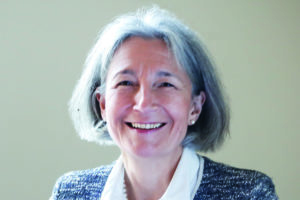None of us has experience of a pandemic like this. Dealing with coronavirus is the biggest challenge to face the NHS since it was founded. And it’s going to be difficult for us all.
Doctors will find themselves working at the edge of their comfort zone. Some will confront harrowing situations. There will be difficult decisions to be made. It will be challenging and uncomfortable and, at times, immensely sad.
Altruistic intent is a fundamental part of the doctor’s credo. We went into medicine to help people and to make things better. As the regulator, the GMC wants to support doctors to do the right thing in these exceptional circumstances.
Delivering the most appropriate and compassionate care to the greatest number of people is the priority right now. When we reach the other side of this, we will all want to feel we did everything we could have done. That means doing right by our patients, but also, just as importantly, supporting our colleagues.
Patients and colleagues look to doctors for leadership. We should set an example – valuing each other, reflecting on mistakes and, when necessary, speaking up when something’s not right. Without this, patient safety can be compromised. That’s why kindness, civility and collaboration are not a distraction from delivering care, they’re an essential part of it. Compassion is what turns technically able doctors into strong leaders. If ever a moment called for strong leaders, it’s this it. Strong leaders listen. They create teams where their colleagues are valued and heard. They recognise there is no monopoly on good ideas and that they don’t have all the answers.
Being a doctor demands that we go above and beyond to deliver care where it’s needed most. But that doesn’t give us licence to overlook our own wellbeing – both emotional and physical. If food, sleep and water are neglected, our judgement may be impaired. Although we know this, we often fail to follow our own advice.
Nurturing ourselves and our teams and taking time to rest and reflect will be critical if we’re to survive and thrive in this crisis. Running on empty will impact on our patients and our colleagues.
We all know this will be a marathon, not a sprint. To protect our workforce, we must take the time now to support staff and prevent illnesses from exhaustion and moral injury down the line.
On behalf of the GMC, and as a doctor myself, I am immensely proud of the response of the health service to this crisis. Be proud of what is being achieved and share that pride with your teams. For your skills and commitment, composure and fortitude, the nation is profoundly grateful.
Thank you.

Dame Clare Marx
Chair of Council and registrant member, England
Dame Clare Marx is Chair of the GMC.
Clare joins a growing body of women leaders in healthcare. She became a Consultant Trauma and Orthopaedic Surgeon at St Mary’s and St Charles’ in 1990 before moving to work at Ipswich Hospital NHS Trust in 1993 for the next 20 years, becoming Associate Medical Director for appraisal and revalidation in 2013.
Clare chaired the Trauma and Orthopaedic Specialist Advisory Committee for the Royal College of Surgeons and co-authored the first competency-based curriculum in Trauma and Orthopaedic Surgery. She received a CBE for services to medicine in 2007 and was elected President of the British Orthopaedic Association the following year. In 2009 she was elected to the Council of the Royal College of Surgeons of England and chaired the Invited Review Mechanism from 2011-14 before being elected President of the Royal College of Surgeons of England (2014-17), the first woman in the history of the College to hold this role. Clare was also the Chair of the Faculty of Medical Leadership and Management until the end of 2018.
She is the first woman to hold the Chair since the GMC was established 160 years ago.